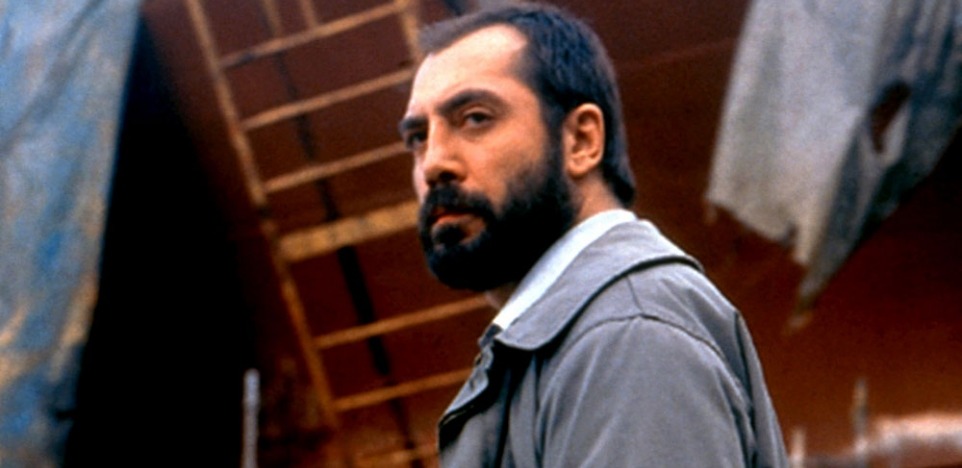Millions and millions of people are without work in the world today. They are the victims of the ever forward moving global economy where the winners are large corporations and international wheeler dealers. The unemployed stand idle, their special talents and energy squandered and depleted. The hours pass slowly when there is nothing to do but wait. Those who still have the drive to work with employment agencies find themselves in competition with many other people. Usually the younger workers are chosen and the old overlooked, despite their years of experience. In the end, it all comes down to resiliency, patience, and determination. But in this uphill battle, there are many ways to numb the worthless feeling that unemployment brings, and alcohol is the most frequently chosen method.
Santa (Javier Bardem) is an angry man who cannot forgive the ruthless bosses of a shipyard who sold him and his co-workers out for their own profit in Vigo, a city in northern Spain. He has a court case pending for breaking a lamppost. Santa tells his lawyer that he won't pay the fine on principle. When he finally is forced to do so or face prison, he defiantly breaks another one as an expression of his contempt for those in power.
Santa flirts with women and even convinces 15-year-old Nata (Aida Folch), the daughter of Rico (Joaquin Climent) who runs the bar he frequents, to let him do her babysitting for a fee while she sneaks out on a date. In one of these excursions, Santa reads the children's book about the ant and the grasshopper and roils against its simplistic depiction of the world as divided between those who are industrious and plan for the future and those who don't and must pay by losing what they have and facing insecurity. Santa dreams of running away to Australia and a better life.
His friend Jose (Luis Tosar) is getting more and more depressed and paranoid about his unemployment. He feels bad that his wife, Ana (Nieve de Medina), must work the night shift in a tuna-canning factory. Her legs ache all the time, and she has to spray perfume on her body to cover up the fish smell. When they go to the bank to apply for a loan, the man handling the transaction humiliates Jose and draws out his anger. He feels inadequate as a husband and as a human being. These negative feelings are drawing him into a dark place where not even Ana is welcome.
Lino (Jose Angel Egid) goes every day for job interviews. He is upset by his habit of sweating profusely in these tense situations. After he dyes his hair to look younger, the color runs down his neck and stains his shirt when he sweats. Diligently, Lino tries to make do in these terrible circumstances. His son tries to teach him to use the computer. But, as the days and the months go by, he is losing hope. It evaporates in front of his eyes as one young man after another is chosen over him.
Amador (Celso Bugallo) has given up looking for work. He is addicted to alcohol and the dream that his wife will come back to him. One meaningless day blurs into another. Santa takes him back to his apartment one night. They share some laughter on the street when Amador says they are all Siamese twins who when they fall down, fall down together. Santa is disgusted and saddened when he sees his friend's apartment filled with refuse and the off-scourings of his empty days.
Two other men linger on the periphery of the bar where Santa and his friends gather to talk and while away all their free time. Sergei (Serge Riaboukine) wanted to be an astronaut but the program was terminated and now all he can do is look up into the night sky and imagine what could have been. Reina (Enrique Villen) is a night watchman at a building near the local soccer field who treats his friends to evenings watching the games. He feels somewhat superior to his comrades and wonders why they haven't been more diligent and humble in seeking any work they could get. This attitude almost gets him into a fight with the volatile Santa.
Mondays in the Sun was the official Spanish entry in the Best Foreign Language Film category for the 2003 Academy Awards. It won five Goya Awards in Spain including Best Film. Best Director, and Best Actor. This is a deeply ethical work that has a universal quality to its depiction of the soul-destroying capacities of unemployment. Writer and director Fernando Leon de Aranoa has a remarkable gift for drawing out the best from actors and for conveying the warts-and-all humanity of these men without work who feel cut off from the land of the living.
